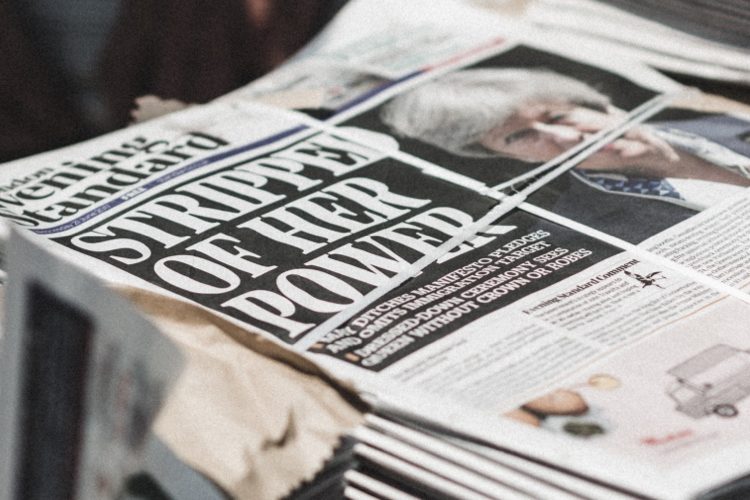By: Ahmad Al-Bazz
One of Double Exposure Investigative Film Festival’s sessions of 2020 discussed the impact of investigative journalism and strategies to maximize it hoping to witness a change. But what if journalism makes no change? To address that question, alumni of Transparency International Young Journalists Program who took part in previous editions of DX Film Festival were interviewed.
In general, the majority of today’s journalists practice journalism for the sake of change. It is their main motivation and the essential value of such a profession. This stems from a strong conviction in the power of media messages and their ability to impact the public and the surrounding political landscape.
For investigative journalists, their ambition to witness a noticeable change is usually higher than the one that can occur due to a regular piece of news. This is because investigative journalism usually tackles unrevealed topics and hidden shocking facts and data; therefore, investigative journalists hold greater expectations for stirring reactions from the public or officials.
But to what extent is this rule applicable in non-democratic countries or even quasi-democracies in some transitory environments? And what if investigative reporting brings no change?
Natalija Jovanovic; a Belgrade-based investigative journalist who has been working for BIRN Srbija for around five years, articulates her disappointment from the low level of actual immediate change that occurs following publishing an investigative piece in her country.
“After a great effort that you put in finding people for your story, finding evidence and finding data, you don’t see any change happening as a result”, she says. Jovanovic believes that “in such a transitional stage where you don’t yet have full democracy, change by journalism is not expected. Journalists in Serbia realize that fact”.
Ana Ćuric, Jovanovic’s colleague at BIRN Srbija shares the same point of view. She has reported once on an “illegal engagement” of some local officials in a medical center. After reviewing the contracts, she found out that the documents are “illegal”, according to her words. “Instead of making a systematic change, the authorities made a cosmetic one by re-considering some problematic articles”, Ćurid says. She mentions that in rare cases a change could happen but “it is always below the level journalists and people wish to see happening”.
Legal reactions or actions taken from within the system, however, are not the only source of change journalists are betting on. Populations, as active audiences and as citizens, can sometimes shape movements in order to inflict pressure on the official level after being informed by journalists’ solid reports. This is simply because the press plays a significant role in shaping people’s collective awareness of the issues and the events surrounding them.
This was the case in many countries ruled by “authoritarian regimes”, as locals describe them, during the past decade. Egypt and Tunisia constitute two examples of how media messages, or even social media, could manage to create real change. However, this is a very accumulative process that sometimes takes tens of years.
Andrew Ochieng, a journalist from Kenya, confirms that impunity is very common in the global south in general. He sees the crisis from two aspects: “the corrupted officials who don’t feel the responsibility for their acts and the inactive citizens who do not react to such practices”.
When he was asked about the reason for such a situation, he indicated that “it is a cycle of hopelessness that was developed over years to an extent citizens disbelieve in their power to change”.
However, what pushes Ochieng to keep reporting is the belief in the “upcoming turning point” that will come sooner or later. “It is important to keep these attempts. We rely on citizens, not governments, in such situations”, he indicates. Ochieng doesn’t recommend evaluating the efficiency of an investigative report by the change it brings on the ground in non-ideal landscapes. He argues that such evaluations should be based on the quality of the work, and to view it “as one attempt, out of hundreds we need to reach a turning point”.
According to some strict schools of journalism, change must not be on journalists’ minds while reporting, but the only focus should be the quality of the piece based on the professional standards of journalism. This point of view, considers that change is not a journalist’s business; it does consider; however, that a society or a government might – without the journalist’s intention- get affected by a journalist’s message highlighting a certain topic. Any push for change from the journalist’s side, flags the journalist’s practices as “intervention”, which according to that perspective, and declares his role closer to that of a lawyer than a neutral reporter.
Faten Jebai, a Lebanese trainer at Al-Jazeera Media Training Center, thinks that the role of change varies from one journalistic piece to another based on its format. “The strict standards of neutrality and objectivity are none-doubtable in some journalistic formats, such as news. However, the whole concept of investigative reporting is based on the journalist ambition for change and fighting corruption” Jebai argues.
She believes that more research should be conducted to identify the reasons why citizens do not react to journalism pieces. She adds that “journalists should think of how audiences receive their materials and how they get engaged, instead of focusing only on the message itself”.
It is obvious that journalism operates differently depending on the surrounding social and political landscape. Nevertheless, journalists need what gives them energy and hope to keep reporting under such un-ideal situations.
Natalija Jovanovic of BIRN Srbija finishes the interview by indicating that what gives her inspiration and energy is those individuals who feel stronger after getting informed by her reports. “Information is power. This is a very long-term journey and informed citizens are my capital, even if they are few, but the number will grow one day and they will be the real change” she finishes.


